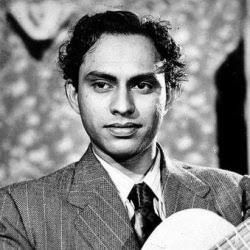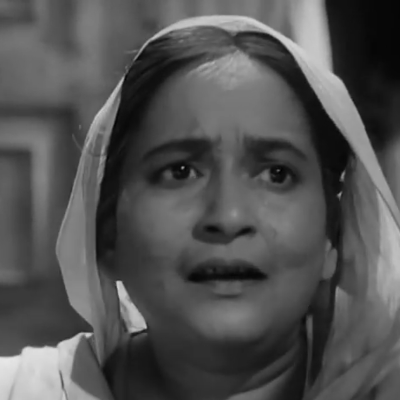B D Mishra
- Real Name: Bhawani Prasad Mishra
- Born: 29 March, 1913 (Tigaria, Hoshangabad, Central Provinces)
- Died: 20 February, 1985
- Primary Cinema: Hindi
Hindi author, poet, and lyricist Bhawani Prasad Mishra was one of the few poets who considered poetry as no less than a religion. He had the gift of conveying esoteric thoughts with ease and simplicity. Mishra penned the lyrics for the film Swayam Siddha (1949), writing 9 songs including Jo beet gaya so beet gaya, Dheere dheere mere man, Shakti de shaktidayini jeevan mein jot de, Ae ri maiyya o ri maiyya yeh kaisa dulha ri, Chali roop ki rani, Naino ke tiri mohe maro na balam, Sab ki nazar bacha ke sada raho, and Suni tumhari bheri mujhko aur na hogi deri. Mishra’s literary works include Geetfarosh, Tus Ki Aag, Trikaal Sandhyaah, Buni Hui Rassi, and the poems Satpuda Ke Ghane Jungle, Pahila Pain, Ghar Ki Yaad and Sannataa, among others. Honoured with the Sahitya Akademi Award in 1972 for his book Buni Hui Rassi, he was a Gandhian by belief and was critical of the effects of colonisation in India. His poems reflected the dream of a new India.
Bhawani Prasad Mishra was born on 29 March, 1913 in Tigaria, Hoshangabad, Central Provinces, British India. He received his education in Sohagpur, Hoshangabad, Narsinghpur, and Jabalpur. He completed his BA in English and Sanskrit. Driven by the ideals of Mahatma Gandhi, he started a school to disseminate learning according to Gandhian beliefs. He was even arrested in 1942. Mishra had started writing poetry regularly from the year 1930 onwards; some of his poems were even published before passing High School. His poetry would be published in Hindupancha, Karmaveer, Hans and Agyeji. His poetry is an expression of change and improvement. Vocal in his protest against the Emergency, he wrote three poems daily as a protest.
He lived in Delhi for several years. Bhawani Prasad Mishra passed away on 20 February, 1985 surrounded by his family members at Narsinghpur in Madhya Pradesh, where he had gone to attend a wedding.










.jpg)


